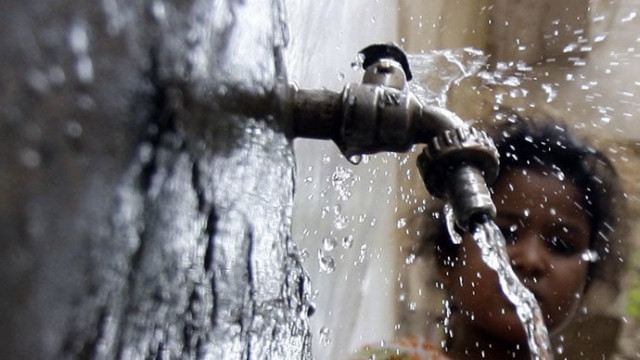LHC puts water wastage under microscope
Seeks further suggestions from officials to conserve this essential commodity

Water wastage. PHOTO: REUTERS
He assured all possible cooperation from the court to stop water wastage as the matter has become one of national concern. Justice Qureshi was hearing different petitions seeking a mechanism to control the waste of water by government departments and individuals. Some of them suggested that the washing of main roads, watering of plants with drinking water and washing of vehicles by private service stations be controlled through a mechanism.
“WASA, PHA and other departments’ officials have not been called to the court to be snubbed or punished,” he asserted. The judge said they were summoned to present their suggestions on methods to control the current wastage of drinking water.
As proceedings commenced, the judge asked officials to put forward their suggestions on ways to control water being wasted on watering plants, cleaning roads and washing cars at service stations. The judge said he had learnt that people of Sindh had started migrating due to the acute water shortage. People and animals are drinking water from ponds and we are wasting it on other things, the judge remarked.
MD WASA Syed Zahid Aziz presented some suggestions, claiming the wastage of water could be controlled to a small extent if large tanks were constructed near mosques. He said these could come handy in storing water used for ablution. Similarly, he suggested tanks could be constructed at service stations where wasted water could be stored for reuse.
He also said accumulated rainwater could be stored from educational institutions and grounds. He gave some other suggestions and said more work was required to store rainwater instead of allowing it to go to waste.
Some proposals were presented by other officials to take measures to fix water prices which would prompt citizens to sparingly use the commodity.
They suggested that private service stations be charged commercial rates, adding that a meter should be fixed at such places to determine how much water is used. The officials pointed out that people had started using electricity carefully when power tariffs were raised.
The judge asked PHA officials if plants could be hydrated through canal water. He also asked about the quantity of water being used by the authority. A representing official answered that PHA had 25 tankers and 263 tube wells. Of the total, only 20 were actual tube and the rest were submersibles, the official told the court. He maintained that tube wells had different capacities of water delivery, such as half, one or one-and-a-half cusecs.
Meanwhile, the WASA MD informed the court that 10 million gallons is being used per day for the purpose of watering plants, according to a rough estimate. The judge was surprised over the figure and observed that all possible efforts should be made to control the wastage of drinking water.
Justice Qureshi ordered the fixing of commercial water rates on service stations within a month. He remarked that authorities would only be given a few days to deal with this omnipotent issue. He also directed the WASA MD to submit written details of suggestions to stop the wastage of drinking water.
Published in The Express Tribune, September 18th, 2018.



















COMMENTS
Comments are moderated and generally will be posted if they are on-topic and not abusive.
For more information, please see our Comments FAQ